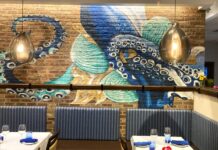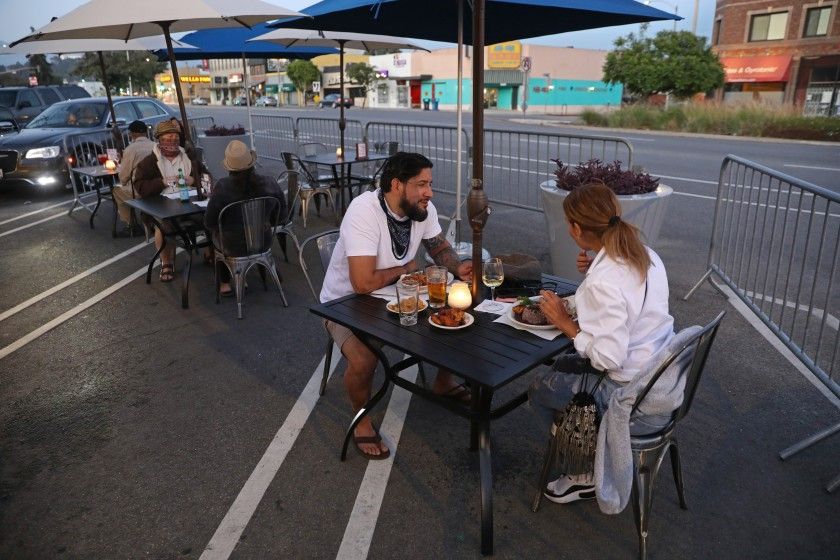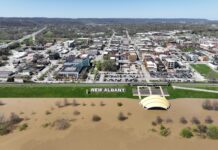“Edibles & Potables,” a Sunday feature at Food & Dining Magazine, debuted on January 5, 2020.
And now for something completely different, at least for Food & Dining Magazine. In the past we’ve tended to take Sundays off from web site posting, but in 2020 our writers will be casting about for items of interest pertaining to food and drink that range beyond our daily focus on the Louisville metropolitan area. Think of these thoughts and links as appetizers prior to the main course.
By “our writers,” read Roger (that’s me, your friendly digital editor), who found that Sunday column composition underwent a profound metamorphosis during the COVID-19 pandemic.
While it was tempting to hoe the same rows as before, it became quickly evident during the period of restricted commerce that we simply cannot view food and dining (small case) in a vacuum.
Here are four examples, beginning with digging in the dirt.
Edibles and Potables: Victory gardens return, channeling energy into dirt
A discussion of what we’re fighting for:
Edibles & Potables: “The restaurant remains a symbol of freedom.”
The human element, obviously the most critical.
Finally, if an expansion of outdoor dining worked during COVID, why not all the time?
Edibles & Potables: Outdoor dining expansion one aspect of wider “resets”
Returning to the present, in May at WDRB-41 — more than three years after the pandemic’s initial onslaught — Dakota Sherek considered the business climate for food and drink downtown: Downtown Louisville business owners struggling to adapt to new realities.
Struggling downtown Louisville business owners say they’re trying to overcome two significant obstacles: empty offices and a perception that the city’s streets are unsafe.
Those conditions have created a perfect storm that have made it nearly impossible for some businesses to survive.
Feel free to disagree, but to me, what all of the preceding implies is that the pandemic period amplified pre-existing challenges, and also hastened creative responses; there’s nothing quite like a crisis to concentrate our thinking.
Once the crisis began waning, the natural urge was to restore affairs exactly as they’d been, which would have been impossible even without a public health crisis (after all, we never step into the same river twice), and became less advisable considering what we’d learned along the way, as with returning to a notion accepted throughout human history: streets have more uses than conveying vehicles alone, to the exclusion of all others.
This brings me to the reason for today’s musings: As Downtowns Struggle, Businesses Learn to Love Bike Lanes, by John Surico at Bloomberg, with this subtitle: “From Manhattan to San Francisco, the need to rethink the urban core is encouraging business improvement districts to change their tune on prioritizing cars.”
It took decades to create the modern office district; now that its critical vulnerabilities have been exposed, adapting these neighborhoods to again welcome a more diverse set of uses stands to be a similarly prolonged process. With the influence and resources they command, business groups stand to be powerful allies in this transformation project, if they get on board with the kinds of policies that other urban advocates have long clamored for.
If the small business climate in downtown Louisville (including prospects for food and dining) reflects consistent post-COVID struggle, perhaps one tool in our arsenal of possible improvements should be a reconsideration of downtown infrastructure to accommodate multiple stakeholders. We saw elements of this approach succeed as pandemic remediation, and maybe this should be telling us something.
Because at “Edibles and Potables,” we’re all about food for thought.























